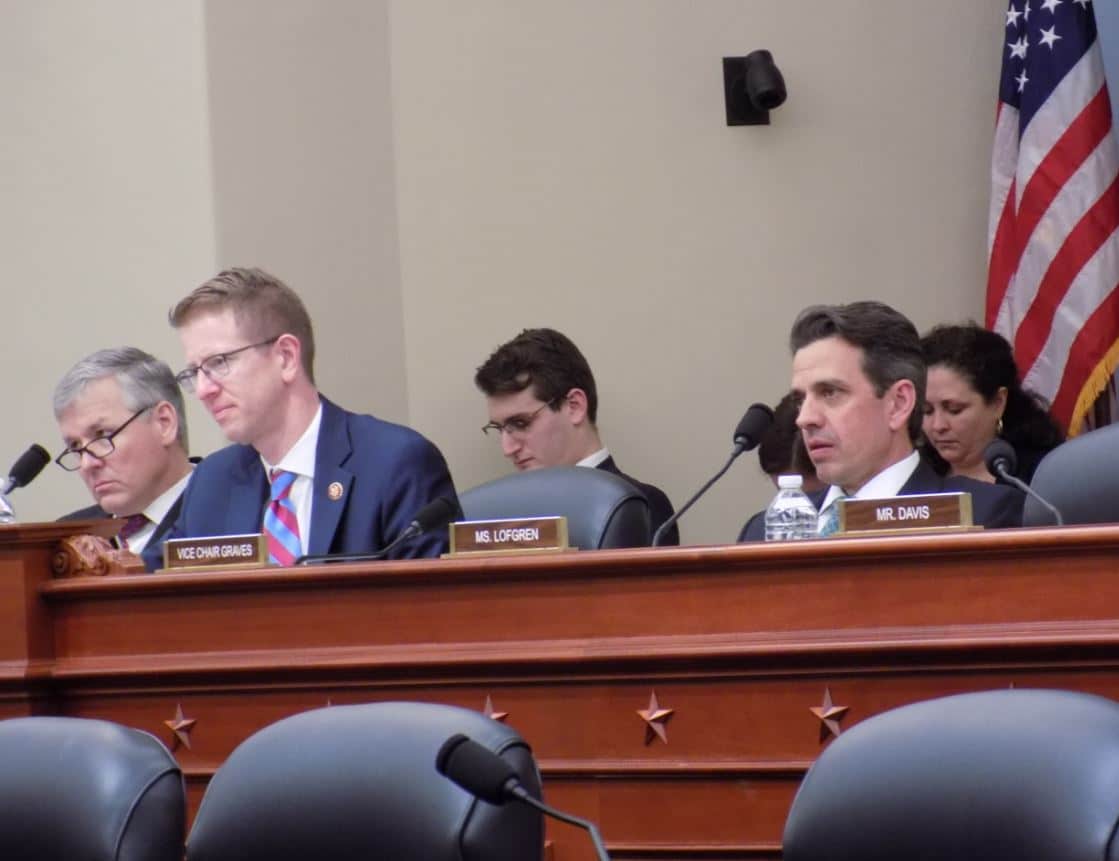House Embraces Bipartisan Plan to Improve Congressional Efficiency

WASHINGTON – The House passed bipartisan legislation Tuesday aimed at making Congress more effective, efficient and transparent.
H. Res. 756, is the brainchild of the Select Committee on the Modernization of Congress, and the product of 16 formal hearings and scores of member- and staff-level briefings and listening sessions.
Also known as the “Moving Our Democracy and Congressional Operations Towards Modernization” Resolution — MODCOM, for short, the measure includes nearly 30 of the Select Committee’s recommendations.
According to a news release from the panel, Tuesday’s vote on the resolution marks the first time in recent memory that a select committee has effectively turned recommendations into legislative action.
“These recommendations are the product of bipartisan collaboration and a commitment to making Congress work better for the American people,” said Rep. Derek Kilmer, D-Wash., chair of the Select Committee.
“These recommendations, though wide-ranging, share a common goal of making Congress more responsive, transparent and accessible for every American,” Kilmer continued. “Today marks the first time in recent history that a committee like ours has turned recommendations into legislative text, and it’s thanks to the collaboration and partnership of Democratic and Republican members.
“I am grateful for their time and commitment to improving the people’s House and I’m hopeful there will be more to come,” he added.
The Select Committee does not have legislative authority, but each committee member co-sponsored the text, led by Kilmer and Rep. Tom Graves, R-Ga., the body’s vice chair, to signal their strong support for delivering real reform in the U.S. House of Representatives.
The recommendations, listed below, will now be implemented by the House:
TITLE I—STREAMLINING AND REORGANIZING HUMAN RESOURCES
Sec. 101. Centralized human resources program.
Sec. 102. Reports on operation of Office of Diversity and Inclusion.
Sec. 103. Examining feasibility of updating staff payroll system.
Sec. 104. Examining feasibility of adjusting the statutory limitation on number of employees of Member offices.
TITLE II—IMPROVING ORIENTATION FOR MEMBERS-ELECT AND PROVIDING IMPROVED CONTINUING EDUCATION OPPORTUNITIES FOR MEMBERS
Sec. 201. Plan for providing pay and benefits to staff of new Members-elect.
Sec. 202. Improving the orientation experience of new Members.
Sec. 203. Exploring the feasibility of establishing a Congressional Leadership Academy.
Sec. 204. Requiring annual cybersecurity training for Members and employees.
TITLE III—MODERNIZING AND REVITALIZING TECHNOLOGY
Sec. 301. Reforming House Information Resources.
Sec. 302. Providing technologies to improve constituent engagement.
Sec. 303. Streamlined approval process for outside technology vendors.
Sec. 304. Enabling Member offices to beta test new technologies.
Sec. 305. Creating a single point of contact between House offices and HIR.
Sec. 306. Improving Member feedback regarding outside vendors and HIR services.
Sec. 307. Leveraging bulk purchasing power of the House.
Sec. 308. Requiring Congressional Research Service to provide rapid response, short fact sheets.
Sec. 309. Establishing nonpartisan constituent engagement and services page on HouseNet.
TITLE IV—MAKING THE HOUSE ACCESSIBLE TO ALL
Sec. 401. Ensuring accessibility of House websites.
Sec. 402. Closed captioning of proceedings; captioning service for videos created by House offices.
Sec. 403. Comprehensive review of accessibility of United States Capitol Buildings and Grounds.
TITLE V—IMPROVING ACCESS TO DOCUMENTS AND PUBLICATIONS
Sec. 501. Adopting standardized format for legislative documents.
Sec. 502. Legislation comparison project.
Sec. 503. Database of information on expiration of authorizations of programs.
Sec. 504. Database of votes taken in committees.
Created by an overwhelming bipartisan vote at the beginning of the 116th Congress, the Select Committee was tasked with producing recommendations on rules to promote a more modern and efficient Congress by looking at, and formulating improvement for, its processes and policies.
Since then, the Select Committee has issued bipartisan recommendations and shared ideas for reform on a rolling basis throughout the year
The rule that created the Select Committee was originally set to expire on Feb. 1, 2020.
Last fall, after widespread bipartisan support throughout Capitol Hill, the Select Committee and its work was extended through the end of the 116th Congress.























